Comprehensive Guide to Garden Maintenance in Plumstead
Introduction to Garden Maintenance
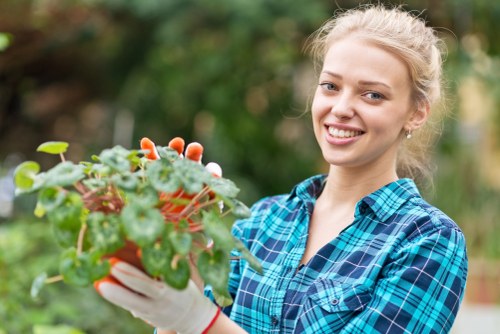
Maintaining a beautiful garden in Plumstead requires dedication, knowledge, and the right techniques. Whether you're a seasoned gardener or a beginner, understanding the essential aspects of garden maintenance can transform your outdoor space into a vibrant and thriving oasis.
Garden maintenance involves a variety of tasks, from regular watering and pruning to pest control and soil management. By implementing a consistent maintenance routine, you can ensure your plants remain healthy and your garden stays picturesque throughout the year.
In this guide, we will explore the key elements of garden maintenance specific to Plumstead's climate and soil conditions, helping you achieve a lush and sustainable garden.
Understanding Plumstead's Climate and Soil
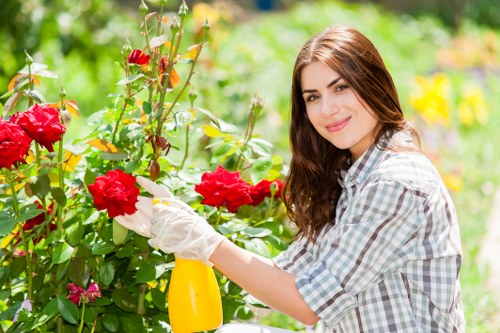
Plumstead experiences a temperate maritime climate, characterized by mild winters and warm summers. This climate is conducive to a wide variety of plants, but understanding the specific weather patterns and soil types in Plumstead is crucial for effective garden maintenance.
The soil in Plumstead typically ranges from sandy loam to clayey, providing good drainage while retaining essential nutrients. However, soil quality can vary within different parts of the area, so conducting a soil test is recommended to determine the best plants and necessary amendments for your garden.
By tailoring your garden maintenance practices to Plumstead's unique climate and soil conditions, you can enhance plant growth and resilience, ensuring a thriving garden year-round.
Essential Garden Maintenance Tasks
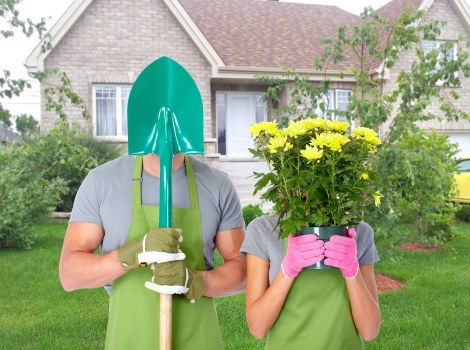
Proper garden maintenance involves a series of tasks that work together to promote plant health and garden aesthetics. Here are the essential tasks every homeowner in Plumstead should prioritize:
- Watering: Regular and adequate watering is vital, especially during the dry summer months.
- Weeding: Removing weeds prevents competition for nutrients and reduces the risk of pests.
- Pruning: Trimming plants encourages healthy growth and maintains desired shapes.
- Fertilizing: Providing essential nutrients boosts plant vitality and productivity.
- Pest Control: Implementing measures to deter and manage pests protects your garden from damage.
Seasonal Maintenance Tips
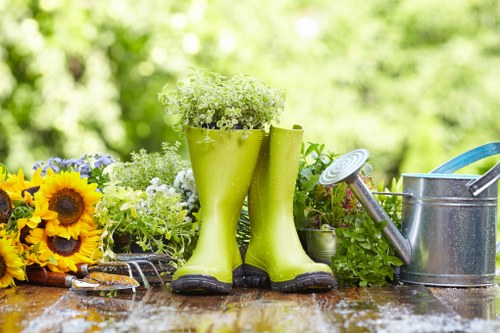
Adapting your garden maintenance routine to the changing seasons is key to year-round garden health. Here's how to adjust your practices throughout the year in Plumstead:
Spring:
As the weather warms, focus on planting new perennials, pruning trees and shrubs, and preparing the soil with compost or fertilizers.
Summer:
Ensure consistent watering, mulch to retain soil moisture, and monitor for pests and diseases.
Autumn:
Clean up fallen leaves, plant spring bulbs, and prepare plants for the colder months by cutting back perennials.
Winter:
Protect sensitive plants from frost, plan your garden layout, and perform maintenance tasks like tool sharpening.
Choosing the Right Plants for Plumstead
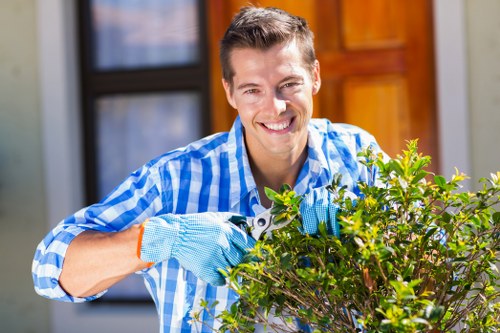
Selecting plants that thrive in Plumstead's climate and soil is fundamental to successful garden maintenance. Consider native species and those well-adapted to the local conditions to reduce maintenance efforts and increase resilience.
Some popular choices include:
- Lavender – drought-resistant and attracts pollinators.
- Roses – classic beauty with varieties suited for different conditions.
- Hostas – shade-tolerant and low-maintenance foliage plants.
- Boxwood – ideal for hedges and structural elements in the garden.
- Daylilies – vibrant blooms with minimal care requirements.
Soil Health and Fertilization
Maintaining healthy soil is the foundation of a thriving garden. Regularly testing your soil can provide insights into nutrient levels and pH balance, allowing you to amend the soil accordingly.
In Plumstead, incorporating organic matter such as compost or well-rotted manure can improve soil structure, enhance fertility, and promote beneficial microbial activity. Additionally, selecting appropriate fertilizers based on soil test results ensures that your plants receive the necessary nutrients without over-fertilizing.
Proper soil management not only supports plant growth but also enhances water retention and drainage, contributing to overall garden sustainability.
Effective Pest Management
Pests can pose significant challenges to garden health, but proactive management strategies can mitigate damage. Integrated Pest Management (IPM) is a sustainable approach that combines biological, cultural, and chemical methods to control pest populations.
Key IPM practices include:
- Monitoring: Regularly inspect plants for signs of pests or diseases.
- Identification: Accurately identify pests to apply appropriate control measures.
- Biological Control: Encourage beneficial insects that prey on pests.
- Cultural Practices: Implementing garden practices that reduce pest habitats, such as proper sanitation and crop rotation.
- Chemical Control: Use pesticides as a last resort, opting for environmentally friendly options when necessary.
Pruning and Trimming Techniques
Regular pruning and trimming are essential for maintaining plant health and aesthetics. Proper techniques ensure that plants grow evenly, prevent disease, and promote airflow.
Here are some pruning tips for Plumstead gardens:
- Identify the Right Time: Prune during the dormant season for most trees and shrubs, and after flowering for spring-blooming plants.
- Use the Right Tools: Sharp, clean tools reduce the risk of damaging plants and spreading diseases.
- Remove Dead or Diseased Wood: Eliminating unhealthy branches prevents further decay and improves plant vigor.
- Maintain Shape: Trim to enhance the natural form of the plant, promoting balanced growth.
- Thin Out: Remove excess foliage to increase light penetration and air circulation.
Watering Strategies for a Healthy Garden
Efficient watering is critical in garden maintenance, especially during the warmer months. Overwatering can lead to root rot and other issues, while underwatering stresses plants and inhibits growth.
Implement these watering strategies for Plumstead gardens:
- Deep Watering: Water deeply to encourage strong root systems.
- Early Morning Irrigation: Reduces evaporation and allows plants to dry before evening, minimizing disease risk.
- Mulching: Helps retain soil moisture and regulate temperature.
- Drip Irrigation: Provides targeted watering, conserving water and reducing weed growth.
- Rainwater Harvesting: Collecting rainwater is an eco-friendly way to supply water to your garden.
Mulching for Soil Health
Mulching is a garden maintenance practice that offers multiple benefits, including moisture retention, temperature regulation, and weed suppression. Applying a layer of mulch around your plants can significantly enhance soil health and reduce maintenance efforts.
Types of mulch suitable for Plumstead gardens include:
- Organic Mulch: Materials like bark, straw, and compost enrich the soil as they decompose.
- Inorganic Mulch: Options such as gravel and rubber provide long-lasting weed control without adding nutrients.
- Living Mulch: Low-growing ground covers that suppress weeds while adding beauty to your garden.
Applying mulch properly involves a depth of 2-3 inches and keeping it away from plant stems to prevent rot and disease.
Lawn Care and Maintenance
A well-maintained lawn serves as the foundation of your garden, providing an attractive backdrop for other plants and enhancing the overall appeal of your outdoor space.
Key lawn care practices for Plumstead include:
- Mowing: Regular mowing at the appropriate height promotes healthy grass growth and prevents weeds.
- Fertilizing: Apply fertilizer based on soil test results to supply necessary nutrients.
- Aeration: Aerate the soil to improve water infiltration and reduce compaction.
- Overseeding: Plant grass seeds to fill in bare spots and increase lawn density.
- Pest Control: Manage lawn pests through biological and chemical methods as needed.
Maintaining a healthy lawn not only enhances your garden's aesthetics but also contributes to environmental benefits like carbon sequestration and temperature regulation.
Garden Tools and Equipment
Investing in the right garden tools and equipment is essential for efficient and effective garden maintenance. High-quality tools can make tasks easier and prolong their lifespan, ultimately saving you time and effort.
Essential garden tools for Plumstead homes include:
- Pruners and Shears: For precise cutting and shaping of plants.
- Garden Fork and Rake: For soil preparation and debris removal.
- Watering Equipment: Hoses, sprinklers, or drip irrigation systems for consistent watering.
- Lawn Mower: Keeps your lawn neat and well-trimmed.
- Wheelbarrow: Facilitates the transport of soil, compost, and other materials.
Regular maintenance of your tools, including cleaning and sharpening, ensures their longevity and optimal performance.
Hiring Professional Garden Maintenance Services
While many garden maintenance tasks can be handled independently, hiring professional services can provide expertise and save you valuable time, especially for more complex jobs.
Benefits of professional garden maintenance in Plumstead include:
- Expert Knowledge: Professionals understand local conditions and can offer tailored advice.
- Time Efficiency: Outsourcing tasks frees up your schedule for other activities.
- Quality Results: Skilled gardeners ensure tasks are completed to a high standard.
- Comprehensive Services: From landscaping to regular upkeep, professionals can manage all aspects of your garden.
- Equipment Access: Professionals have the necessary tools and equipment for efficient maintenance.
Consider consulting with local garden maintenance companies to find services that match your needs and budget.
Sustainable Gardening Practices
Embracing sustainable gardening practices not only benefits the environment but also enhances the health and resilience of your garden.
Key sustainable practices include:
- Composting: Recycling organic waste enriches the soil and reduces landfill contributions.
- Water Conservation: Implementing efficient watering systems and drought-tolerant plants minimizes water usage.
- Organic Gardening: Avoiding synthetic chemicals promotes biodiversity and soil health.
- Native Plant Selection: Native species are well-adapted to local conditions and require less maintenance.
- Pollinator-Friendly Gardens: Creating habitats for bees, butterflies, and other pollinators supports ecosystem balance.
Incorporating these practices into your garden maintenance routine fosters a sustainable and eco-friendly outdoor space.
Common Garden Problems and Solutions
Even with diligent maintenance, gardens can face various challenges. Identifying and addressing common problems promptly ensures your garden remains healthy and beautiful.
Pest Infestations:
Use IPM strategies to manage pests without harming beneficial insects. Introduce natural predators and use organic treatments when necessary.
Disease Management:
Maintain plant health through proper watering, pruning, and sanitation to prevent the spread of diseases. Remove and dispose of infected plants promptly.
Weed Overgrowth:
Regular weeding and mulching help keep weeds at bay. Consider using landscape fabric for long-term weed suppression.
Poor Soil Quality:
Amend the soil with organic matter and conduct soil tests to address nutrient deficiencies. Ensure proper pH levels for optimal plant growth.
Watering Issues:
Adjust your watering schedule based on seasonal changes and specific plant needs. Ensure your irrigation system is functioning correctly to prevent over or under-watering.
Creating a Garden Maintenance Schedule
Establishing a regular maintenance schedule helps keep your garden tasks organized and ensures nothing is overlooked. A well-planned schedule accommodates seasonal changes and plant growth cycles.
Steps to create an effective garden maintenance schedule:
- Assess Your Garden: Identify all areas and plants that require maintenance.
- List Required Tasks: Include watering, weeding, pruning, fertilizing, pest control, and soil management.
- Determine Frequency: Assign how often each task should be performed (daily, weekly, monthly, seasonally).
- Create a Timeline: Map out tasks on a calendar to visualize when each needs to be completed.
- Allocate Resources: Ensure you have the necessary tools, equipment, and supplies for each task.
- Review and Adjust: Periodically assess the schedule's effectiveness and make adjustments as needed.
A structured maintenance schedule promotes consistency, reduces stress, and leads to a well-maintained garden.
Benefits of Regular Garden Maintenance
Consistent garden maintenance offers numerous benefits that enhance both the aesthetic and functional aspects of your outdoor space.
- Enhanced Curb Appeal: A well-maintained garden boosts the visual appeal of your property.
- Increased Property Value: Quality landscaping can add significant value to your home.
- Healthier Plants: Regular care ensures plants grow robustly and are less susceptible to diseases.
- Environmental Benefits: Gardens contribute to air purification, biodiversity, and climate regulation.
- Personal Well-being: Spending time in a beautiful garden can reduce stress and promote mental well-being.
Investing time and effort into garden maintenance yields lasting rewards for both you and the environment.
Conclusion: Achieving a Flourishing Garden in Plumstead
Maintaining a garden in Plumstead is a rewarding endeavor that combines creativity, effort, and knowledge. By understanding the local climate and soil, performing essential maintenance tasks, and adopting sustainable practices, you can cultivate a garden that flourishes year-round.
Whether you choose to manage your garden independently or enlist the help of professional services, consistent maintenance is key to unlocking your garden's full potential.
Contact us today to start your journey towards a stunning and healthy garden in Plumstead!